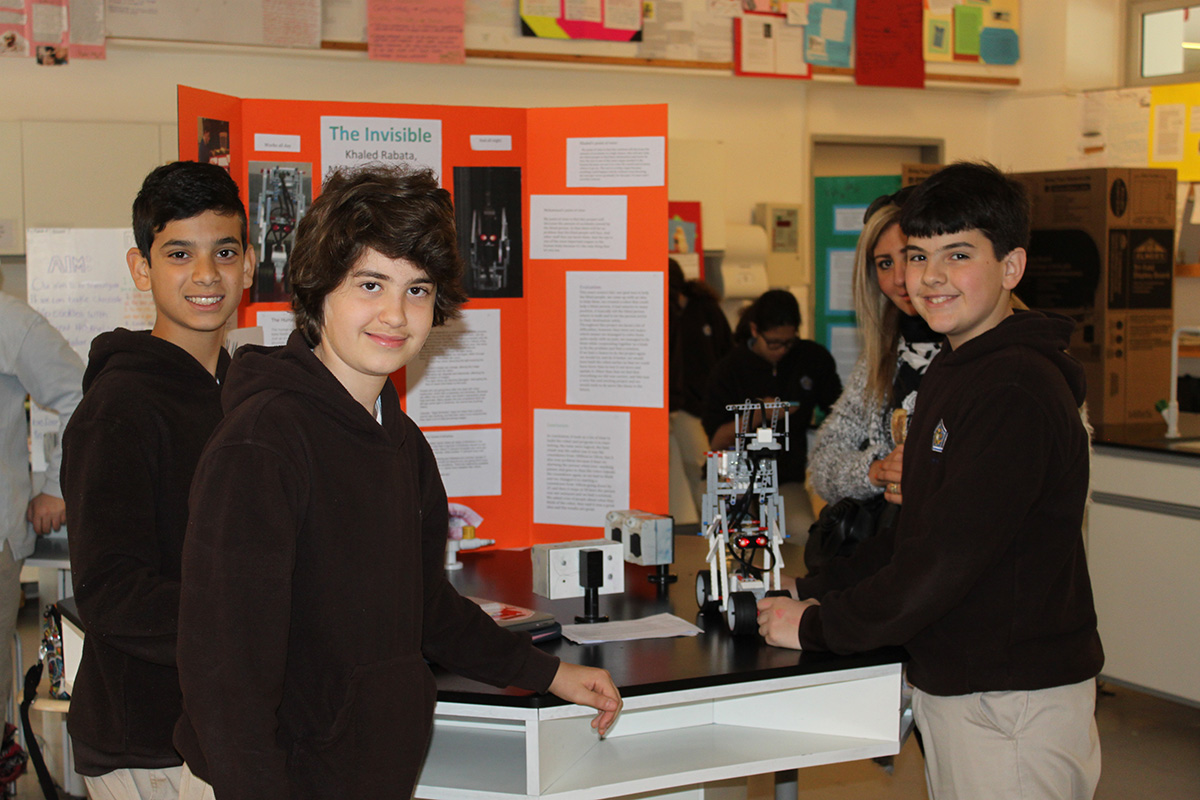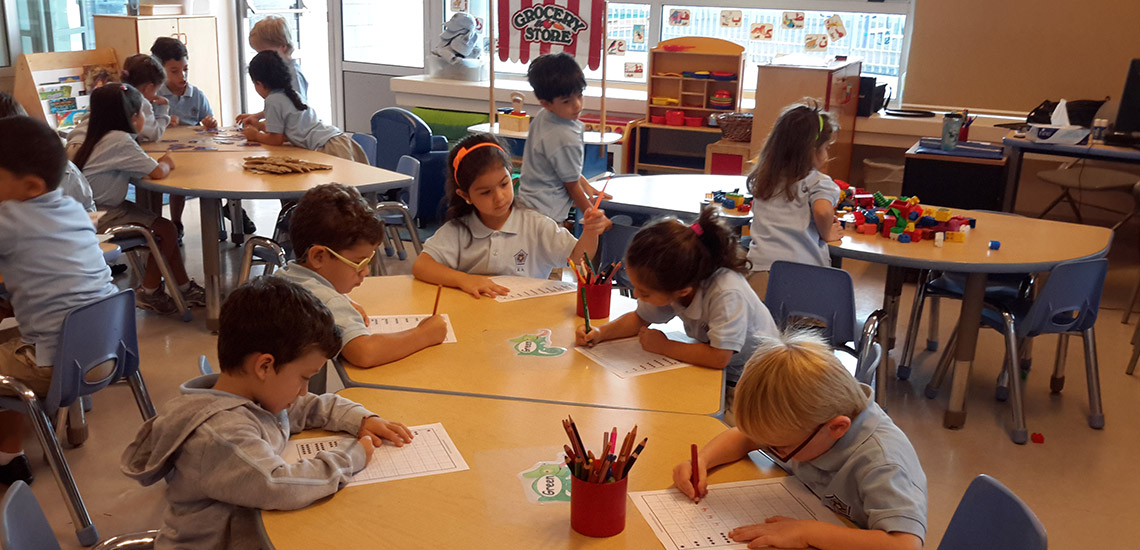 The curriculum at IAA is designed to prepare students for a range of possibilities and futures. The Primary School uses a synergy of subject curricula from prominent English-speaking nations, all converging to deliver the best overall programme. In Grades 1 to 5, IAA uses the British National Literacy Programme for English, Australian Mathematics and the International Primary Curriculum from the UK for integrated science, history, geography, music and art.
The curriculum at IAA is designed to prepare students for a range of possibilities and futures. The Primary School uses a synergy of subject curricula from prominent English-speaking nations, all converging to deliver the best overall programme. In Grades 1 to 5, IAA uses the British National Literacy Programme for English, Australian Mathematics and the International Primary Curriculum from the UK for integrated science, history, geography, music and art.
 The curriculum at IAA is designed to prepare students for a range of possibilities and futures. The Primary School uses a synergy of subject curricula from prominent English-speaking nations, all converging to deliver the best overall programme. In Grades 1 to 5, IAA uses the British National Literacy Programme for English, Australian Mathematics and the International Primary Curriculum from the UK for integrated science, history, geography, music and art. The Kindergarten and Pre-Kindergarten programmes use the "Early Years Foundation Stage" curriculum, which is the British National Curriculum for early years" programmes. The Secondary School is authorized to offer the International Baccalaureate Middle Years Programme and Diploma Programme, academically rigorous programmes that are globally recognized as among the finest in the world. In addition, IAA uses the Jordan Ministry of Education curriculum for Arabic-medium courses. IAA has endeavoured to choose curricula that place significant emphasis on critical thinking and problem-solving. This approach allows young learners to evolve into resilient leaders equipped to confront challenges throughout their lives, effectively and confidently.
The curriculum at IAA is designed to prepare students for a range of possibilities and futures. The Primary School uses a synergy of subject curricula from prominent English-speaking nations, all converging to deliver the best overall programme. In Grades 1 to 5, IAA uses the British National Literacy Programme for English, Australian Mathematics and the International Primary Curriculum from the UK for integrated science, history, geography, music and art. The Kindergarten and Pre-Kindergarten programmes use the "Early Years Foundation Stage" curriculum, which is the British National Curriculum for early years" programmes. The Secondary School is authorized to offer the International Baccalaureate Middle Years Programme and Diploma Programme, academically rigorous programmes that are globally recognized as among the finest in the world. In addition, IAA uses the Jordan Ministry of Education curriculum for Arabic-medium courses. IAA has endeavoured to choose curricula that place significant emphasis on critical thinking and problem-solving. This approach allows young learners to evolve into resilient leaders equipped to confront challenges throughout their lives, effectively and confidently.
The International Academy-Amman understands the central role of national identity and cultural heritage in the success of both individuals and communities. IAA aspires to educate children to become active members of the Jordanian community by fostering a strong connection with Jordan and the Middle East. Students are immersed in Arabic in their Social Studies (which is offered alongside Social Studies in English), Religion and, of course, Arabic Language curricula. The school also celebrates all Jordanian, Islamic and Christian holidays as integral to IAA"s spiritual and cultural identity. At the same time, IAA is international in its perspective, employing world-class programmes that allow the students to understand their own culture within a global framework.
IAA graduates are equally prepared to attend English-language university programs around the world, including North America, Europe, Oceania and the Middle East. The school holds accreditation from the New England (United States) Association of Schools and Colleges (NEASC), the Council of International Schools (CIS) and the Jordan Ministry of Education. All Secondary students attend American Scholastic Aptitude Test (SAT) preparation courses in Grade 11. They may also opt to earn either the International Baccalaureate Diploma or course certificates. IAA students take and perform well on SAT Subject tests, which are the basis of the "SAT" Curriculum, in addition to earning their Jordanian "Tawjihi" equivalency.
IAA"s motto is "Learners of Today - Leaders of Tomorrow", and its curriculum is designed to prepare students for that role.



 The curriculum at IAA is designed to prepare students for a range of possibilities and futures. The Primary School uses a synergy of subject curricula from prominent English-speaking nations, all converging to deliver the best overall programme. In Grades 1 to 5, IAA uses the British National Literacy Programme for English, Australian Mathematics and the International Primary Curriculum from the UK for integrated science, history, geography, music and art.
The curriculum at IAA is designed to prepare students for a range of possibilities and futures. The Primary School uses a synergy of subject curricula from prominent English-speaking nations, all converging to deliver the best overall programme. In Grades 1 to 5, IAA uses the British National Literacy Programme for English, Australian Mathematics and the International Primary Curriculum from the UK for integrated science, history, geography, music and art.